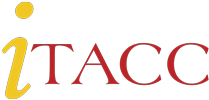Project Name:
Equal Native Youth Voices
Type of practice
Other successful practice
Area of Emphasis
Quality Assurance and training in self-advocacy, leadership, and self-determination
Project/activity year
2020
Population of focus
People with intellectual and developmental disabilities
Unserved and underserved (by Racial and ethnic minority backgrounds)
Strategies used
Outreach
Training
Supporting and Educating Communities
Coalition Development and Citizen Participation (self-advocacy training, educating policymakers, and citizen leadership skills)
Project Description
The Arizona DD Council provided a grant to the Native American Disability Law Center (NADLC) to support the Equal Native Youth Voices, on (Navajo) Native American youth with I/DD to increase their understanding of their legal rights and develop skills for them to speak to themselves, make their own decisions, and respectfully advocate in their communities.
The goals of the project were to increase understanding of legal rights, build capacity for advocating with respect, and develop skills to speak up for themselves and make their own decisions.
The NADLC program is culturally based as it works with Navajo teens attending Greyhills Academy. The curriculum is based on their culture and part of the leadership curriculum uses a medicine wheel of Four Dimensions (Physical, Emotional, Spiritual and Mental). Students stated that using the medicine wheel helps them express their feelings and to realize they are not alone in going through hard times at home or at school. This method is important because it allows the participants to connect with other students and feel not alone in dealing with their current situations, it gives them the space to share their concerns, worries or hardships with educators and other staff and helps them advocate for their needs and how to address their situations. Our partners were the Native American Disability Law Center (NADLC), students with developmental disabilities and their families, and Greyhills Academy High School staff.
Impact (or impact-to-date) of the project/activity for people with ID/DD and their families
23 youth participated in FY 2020.
Students with I/DD learned how to speak about their disability, how to speak up for their choices and decisions in school, at IEP meetings, and at home, they learn about future opportunities for attending college or work options, they learn how to ask for accommodations, how to communicate with teachers and other adults. 100% of the participants were satisfied with the project, 92% stated they are better able to say what services or supports they want or what is important to them.
100% of the participants were Native American.
Story
Story perspective
Person with ID/DD
What were things like BEFORE you/your family/partner/community participated in the project/activity?
I did not know what my rights were or how to ask for things I needed.
What are things like AFTER you/family/partner/community participated in the project/activity?
Now that I know what my rights are, I can ask for support so I can learn and participate in things. I am able to be respectful in asking for things I need and want.
What was most beneficial to you/family/partner/community from participating in this project or practice?
To be with other people like me from my school. I am not alone.
The role of the DD Council in achieving positive outcomes through this project.
The DD Council provided this program in my community school. I don’t think anyone else would have thought we were important – but they did!
Contact Information
Name
Marcy Crane
Email
mcrane@azdes.gov
Council location
Arizona
